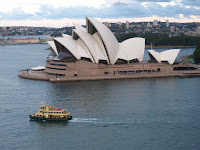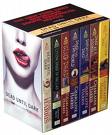
Sometimes sayings, words, or thoughts come up in life in a synchronistic way. Chatting with someone recently about their frustration over their partner’s “small life” and his disinterest in engaging in the outside world, I began to wonder what is meant by such a thing.
What is a big life and what is a small?
- Is a big life full of big ideas ... daring political thought and activity or ambitious actions on career and financial fronts?
- Is a big life one lived very publically, one that requires loads of people to be involved – perhaps by community participation, public performance, a huge family or so on?
- Or is a big life one that encompasses lots of travel and risk taking?
- Is a small life one that centres on the domestic, the personal, the egocentric or the quiet?
- Is it one that is crowded with unchallenging interests like daytime TV and magazines about pop culture?
- Is it one lived locally, not globally, occupied with personal concerns, hobbies, day-to-day tasks and routines in housekeeping, child rearing and the like?
Is it simply one that doesn’t involve seeing other people’s viewpoints?
Living a “small life” was something that concerned me much more when I was younger. Then it represented a life of claustrophobic boundaries where I did not meet many new and interesting people, I did not travel enough and I was not a global commercial success of some kind, any kind.
Today I fear a “small life” that does not bring service and joy to others, that is too self concerned and doesn’t impact on others enough in helpful ways and one that doesn’t expose me to new ideas and information.
A recent trip to Sydney brought this home. I was so blessed (staying at The Observatory Hotel for God’s sake) and seeing some very dear old friends and meeting some new ones and thus I became intensely aware of how privileged I am compared to so many people - hence the man sitting at the traffic lights outside the QV building was the recipient of $5.
I am aware of this privilege every day and try to honour and appreciate it but, hell, I am not the Dalai Lama.
Sometimes I think the feeling of “the small life” can come simply from getting stuck in too much of a rut. Personally the sunroom has been home to too much distraction lately. Despite – ironically - recently finishing
RAPT: Attention and the Focused Life by Winifred Gallagher my own attention has been wondering, mainly because of that feeling of being a whiskered mouse chasing the wheel.
Being in Sydney, solo, got me some mojo back I hope. Frustrations with my main client are not as exhausting as I was making them. Good ideas and talented people are everywhere and there are new tricks to try if only I open up my eyes and see the rabbit and the hat before me.
I did my YEAR OF THE NOVEL homework (reading an article by Orham Pamuk) about ‘The Implied Author’ in the cafe of the Gallery of New South Wales while a frilly bummed Ibis picked and pecked around me. One of my art heroes – Edmund Capon (Director and Chief Curator of the Gallery since 1978) – was meeting over lunch at a table nearby. In the gallery shop was a copy of his book (I Blame Duchamp, published by Penguin) plus pairs of colourful mismatched socks inspired by the man himself.
I remember hearing an interview with Capon on ABC radio back when I was enjoying my ‘sabbatical’ in Byron Bay six or seven years ago and really enjoying it and becoming intrigued by him. What passion, what humour! I should have bought the coloured socks when I had the chance so I could look down and remember those qualities on days when I need ‘em.
Then I headed round the Archibald show (the winning SAM LEACH/Tim Minchin portrait is extremely impressive up close) before walking back through gorgeous Sydney city to the Rocks, dumping my gear at the hotel before walking, for the first time, over the city’s famous bridge. (I listened to interviews with Peter Carey and Ian Rankin on ABC Radio National’s book show as I walked and took some photos that I really like.)
While not listening to the podcasts I found myself pondering some of what I’d read at the gallery. Orham Pamuk had said, “I feel happy the moment I reach my desk, my pen and my paper. In no time at all I can leave behind the familiar, boring world of the everyday and step into this other, bigger place to wander freely, and most of the time I have no desire to return to real life or to reach the end of the novel.” And he’s mentioned that his “daughter can tell that I have not written well that day from the abject hopelessness on my face in the evening. I would like to be able to hide this from her, but I cannot. During these dark moments, I feel as if there is no line between life and death. I don't want to speak to anyone, and anyone seeing me in this state has no desire to speak to me either.”
No one can say Pamuk lives a small life (a little thing called the Nobel Prize in Literature 2006) but he reminded me of something that bothers me with writers sometimes ... do you have to observe life but not participate in it to be good artistically?
Peter Carey spoke about being a voyeur and how that is a necessary quality for a novelist. Many writers speak of that. Hell, even in my humble magazine writing I sometimes find myself wishing to change an interviewee’s quotes so they sound more erudite or express an idea more elegantly. (Tisk tisk, I don’t do it of course!)
Then Ian Rankin chimes in and lists all the rock concert ticket stubs he has on his pin board in his office, proof of his passion for music and his alter ego of a frustrated musician. He has people like REM inviting him to his concerts when they’re in town because he’s mentioned one of their songs in a book and they’re fans. Now THAT is a big life!




